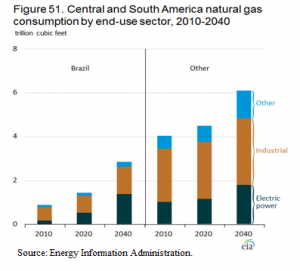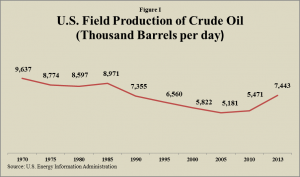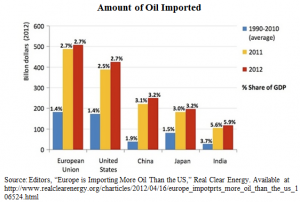Creating Reliance on U.S. Energy
The world that exists today is one of open barriers, and intertwined economies that become necessary in foreign policy. The more entwined economies get the more resistance there is for justifying conflict with each other. It just gets too expensive. It is one of the reasons that a conflict with China is not very realistic despite what some media outlets may say. The best way to accomplish this is through trade of a good, and the U.S. is producing the most sought after good of all, energy. Many countries around the world are recognizing the need for U.S. energy, and Chile just became the latest.
Where many Latin American countries such as Brazil and Venezuela are rich in natural resources, Chile is actually the poorest boasting a measly 150 billion barrels of oil and 3.46 billion cubic feet of Light Natural Gas (LNG). In order to cover for the shortfall the country is turning to light natural gas, and the United States to fill the gap. In the 1990’s the primary provider of LNG for Chile was Argentina and was delivered through a pipeline. Due to domestic shortages in Argentina, Chile had to change its reliance to countries that were further away such as Qatar, Yemen, and Equatorial Guinea.
By creating lasting economic relationships with the Americas, the U.S can help meet their energy needs. In addition to energy requirements, Latin American Counties such as Chile are also making changes to its environmental regulation that resembles the policy of the United States.
LNG is proven to provide a tremendous amount of benefits when comparing to coal and oil. LNG is cheaper than oil, and produces little to no carbon dioxide emissions which have come under fire lately in the U.S. government. While the process of fracking does leak the greenhouse gas methane the amount of leakage varies from 2 to 8 percent. According to a study by the Recorder, if methane leakage is 2 percent then after 55 years the amount of carbon reduced compared to coal use is a staggering 55 percent! While 8 percent leakage of methane still produces a benefit of 17 percent reduction over a course of 100 years. This brings up an extremely interesting scenario; can the U.S. cut the reduction of the planet’s carbon dioxide levels from exporting LNG?
Many in the U.S. continue to go on and on about solar and wind energy, when the facts are simple. The technologies cost billions in research still, do not provide the power that existing energies do, and increase costs for consumers. Even worse to imagine is that these problems are in the U.S. Where we have the most advanced technology in the world, rational thinking would prove that other countries around the world will continue to use both coal and oil.
That is where natural gas exportation comes in. By allowing exports of natural gas, and increasing relations with several countries that have high carbon dioxide emissions, we can curb emissions through the free market. It is a fairly easy thing to accomplish within the government as well. The country would be able to sell cheap, affordable clean energy, and reduce emissions while increasing quality of life in developing countries. It is past the time of easing economic regulations; in order to create prosperity in these countries it must be done utilizing free trade.
The U.S. is at an amazing time in its history where unemployment has hit a 6 year low and 200,000 jobs are being created monthly due to our spur in energy innovation. Markets around have a pressing need for our own labor capital and energy resources. It is time to meet that need.





